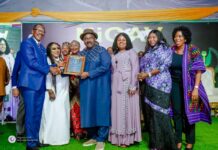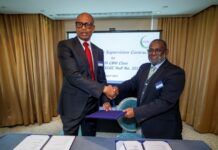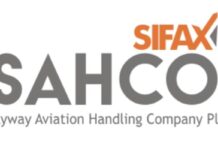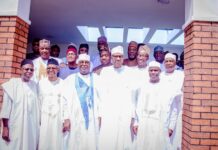The National Economic Council (NEC) yesterday threw out the national social register adopted by former President Muhammadu Buhari’s administration to implement its conditional cash transfer.
The council, instead, proposed the implementation of a cash transfer programme for states based on their social registers and a cash reward policy for public servants for six months.
The decision was part of the outcome of the meeting by members of the council held at the state house yesterday.
Recall that President Bola Ahmed Tinubu had last week, written to the national assembly seeking an approval to accommodate N500 billion by adjusting the 2022 supplementary budget to offer palliative of N8,000 monthly for a period of six months to 12 million vulnerable each.
He explained that the money was needed to cushion the effect of removal of fuel subsidy.
The governor of Anambra State, Prof Charles Soludo who addressed the media after the meeting which was chaired by the vice president, Mr. Kashim Shettima, said the NEC agreed that states should generate registers that are comprehensive and ensure that it will be for the vulnerable only.
Soludo said contrary to what the previous administration projected, it is not possible to digitally transfer money to the poorest of the poor the majority of whom are unbankable.
He said the beneficiaries of the supposedly transferred cash could not be identified in the villages.
He said NEC resolved that the states should come up with their own registers using formal and informal means to develop it, assuring that all beneficiaries at the sub-national level could easily been accessed that way.
“We need to face the problem of the fact that we don’t have a credible register,” he said.
“The first question that was raised is in relation to cost of governance. I think it’s an omnibus concept, and it’s not something you sit down in a meeting to legislate for each and every state.
“But the fact that the council recognises that this is an issue that each tier of government should now focus on is an area of concern. Some gave an example of a state governor going with 20 something vehicles in a convoy and all these have to be fueled, and so on and so forth.
“We need to be sensitive to the times, we need to live within the average of the people that we’re governing and so on and so forth. And knockoff the waste and the irrelevance so to speak.
“I will like to give you a simple example. When I assumed office, it was costing about N137 million every month to clean up public offices, and so on. Today, in Anambra we’re doing N11 million a month from N137 million on a monthly basis, just an illustration. And it’s a thing that we’re persuading each and every one of us to look into, check into our books and look ourselves in the mirror and move with the times.
“Second thing I’d like to respond is in relation to the social register that has been mentioned. I think at the council today, there was almost near unanimity among members. That there’s a big question mark about the integrity of the so called National Social Register.
“We have questions about how those names in the register were brought about and I’m sure one question I hear asked is where it is for the most vulnerable group, and so on and so forth.
“Let’s talk about a social register. Distributing things through the social register by digital means, implying that these people already have account numbers and they have phone numbers. Maybe we are talking about some other people and not Nigerians. The poorest 25 per cent of Nigerians are likely, if not totally unbanked, and don’t have access to telephone,” Soludo said.




























































